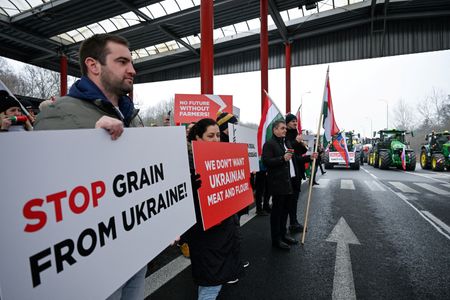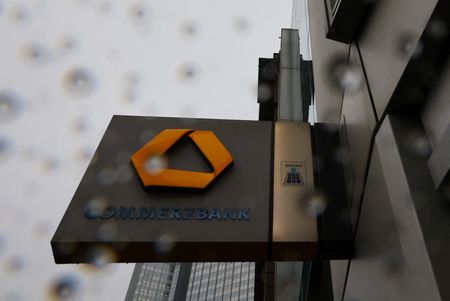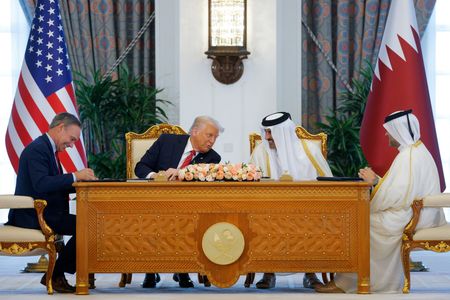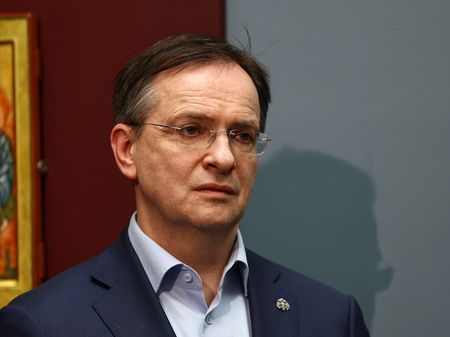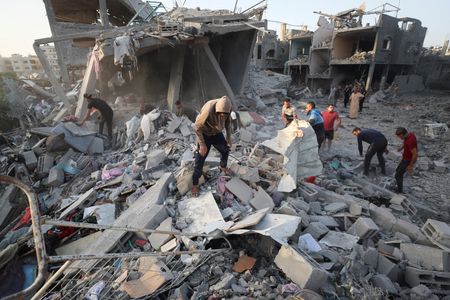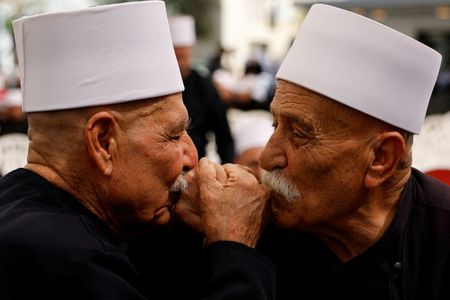By Julia Payne and Philip Blenkinsop
BRUSSELS (Reuters) -The EU is weighing a temporary return to its pre-war trade agreement with Ukraine if a renegotiated deal is not ready to take effect when war-related tariff suspensions expire on June 5, EU diplomats said on Wednesday.
The Commission proposed this transitional period would last seven months or until a new deal can come into effect.
The EU temporarily waived duties and quotas on agriculture products in June 2022 after Russia’s full-scale invasion to help Ukraine compensate for the higher costs of its exports via the EU, after Russia threatened its traditional Black Sea shipping lanes.
“That regulation, suspending all tariff-rate quotas…until June 5, 2025, following which trade between the Union and Ukraine reverts to the rules established under the Association Agreement,” the proposal showed, referring to a 2014 agreement.
“Taking into account the tariff rate quotas under the Association Agreement are established for a full calendar year…the tariff rate quotas will be pro-rated on a proportional basis for the remainder of the calendar year.”
Ukraine’s finance minister said on Wednesday he was in talks with the EU to renew the emergency measures but the Commission said no extension was planned.
“The Commission is not planning to propose an extension of the ATMs (tariff suspension)… because we are currently working on the review of the EU-Ukraine Deep and Comprehensive Trade Area,” the spokesperson said.
“In this review process, our priority will be the gradual compliance of Ukraine with EU production standards, and a safeguard clause that could be triggered to prevent any disturbance to the EU and Ukrainian markets.”
EU farmers have repeatedly protested against a sudden influx of cheaper products from Ukraine and the Commission introduced “emergency brakes” on imports of poultry, sugar, oats, maize, groats, and honey if these exceed the yearly average in 2021-2023.
The Commission has been eyeing a sharp cut to Ukrainian sugar imports amid complaints that large shipments have fuelled a collapse in prices.
The EU is Ukraine’s largest trade partner and Ukraine is the third-largest supplier of agri-food products to the EU, according to EU data.
(Reporting by Julia Payne and Philip Blenkinsop; Additional reporting by Jan Strupczewski; Editing by Toby Chopra)

